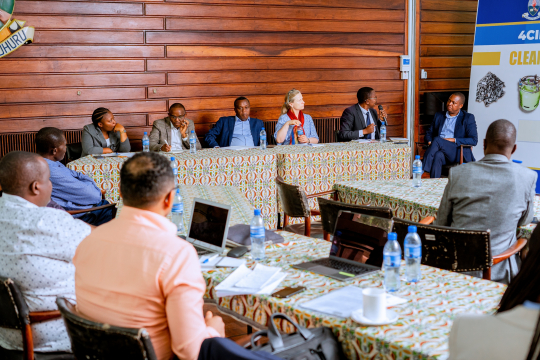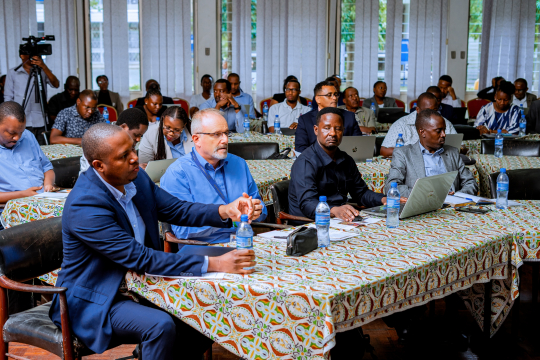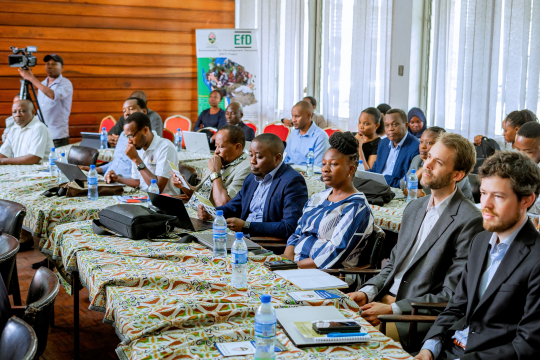Researchers, policymakers, and technicians in the energy industry sector agree that more efforts need to be directed to the community on the importance of clean cooking technology. This is necessary to improve the health of households, avert environmental degradation, and mitigate climate change.
“In Tanzania, only 2-5 percent of the population has access to clean cooking technology and the mortality due to household air pollution is high, with an estimated 33 000 premature deaths per year,” said Lard Kare Grimsby, an Associate Professor at the International Environment and Development Studies Society.
Those remarks were made during the Universal Energy Access, Clean Cooking, and Climate Change Impacts workshop held on 5th May 2023 at the University of Dar es Salaam.
The energy sector is changing
He said there is a need to provide knowledge on clean cooking in Tanzania. He also said that lack of access to clean cooking technology is the single largest environmental risk factor for disease and disability in countries relying on traditional biomass fuels for household energy due to household air pollution. These fuels are also associated with deforestation and climate change.
He concluded however that Tanzania’s energy sector is rapidly changing, and a transition towards increased usage of non-biomass-based fuels is gaining pace. The Government’s intention is to foster nationally planned interventions and robust governance systems in the energy sector, including cooking energy which constitutes between 80 and 90 percent of the country’s total primary energy supply.
The government is promoting a transition
Joyce Msangi, a participant in the Inclusive Green Economy (IGE) program and an Environmental Expert, coordinating the European funded Program, Integrated approach to clean cooking solution from the Ministry of Energy also shared her experience during that workshop. She noted that the industry continues to develop several projects and companies are reaching milestones.
“Tanzania is estimated to have 45 billion m3 of natural gas reserves, enough to cover the country's domestic use and make Tanzania the next natural gas hub in Africa,” she said.
She noted that the government is striving to ensure a switch to clean energy. In Tanzania, nine thermal power plants are converting natural gas to electricity: Ubungo, I and II, Tegeta, Songas, Mtera, Somanga, Kinyerezi I and II, and Dangote with a total production per year of approximately 650 MW. The Songas Project is currently producing around 200 MW of electricity using natural gas.
“Research is important”
Joyce Msangi also noted that researchers are very important for increasing the community’s knowledge of clean cooking and helping people when making choices for their households. She underlined that such researchers help the government to know how to implement their clean cooking programs.
Yusuph Kulindwa an EfD Research fellow from Moshi Cooperative University remarked that there is a need for all energy experts to work together to ensure that clean energy is accessible to all people in the country.
“We want an energy transition. That is why the government is taking measures to promote the use of renewable energy technologies such as biomass, micro-hydro, solar, wind, and other locally available energy sources including coal and geothermal,” he noted.
The panelists discussed the need for knowledge and policies for the future of clean cooking transition in Tanzanian. The facilitator Dr. Remidus Ruhinduka EfDT research fellow from the University of Dar es Salaam School of Economics made a motivational presentation. Other panelists were Joyce Msangi from the Ministry of Energy, Anold Mapindunzi from the Tanzania National Environmental Management Council (NEMC), Finiasi Magesa engineer at Tanzania New Energy Association (TAREA), Imanuel Muro from the National Development Capital Fund (UNCDP), and Kirsten Ulsrud, Senior Research Fellow at the Center for International Climate Change Research (CICERO), Norway.
The workshop was organized by the University of Dar es Salaam School of Economics in collaboration with partners in the research project 4CImpacts: Centre for International Climate Research (CICERO), Norwegian University of Life Sciences, and the University of Liverpool. Funder: The Research Council of Norway and the Center for Environment for Development Tanzania (EfDT).
More media coverage:
Mlimani TV UDSM (in Swahili): https://www.youtube.com/watch?v=y65Yrxdy1hI
MMBU CLUB BLOG (in Swahili/English: http://mmbuclub.blogspot.com/2023/05/watafiti-wakutana-kubadilishana-matokeo.html?m=1
By Salvatory Macha


